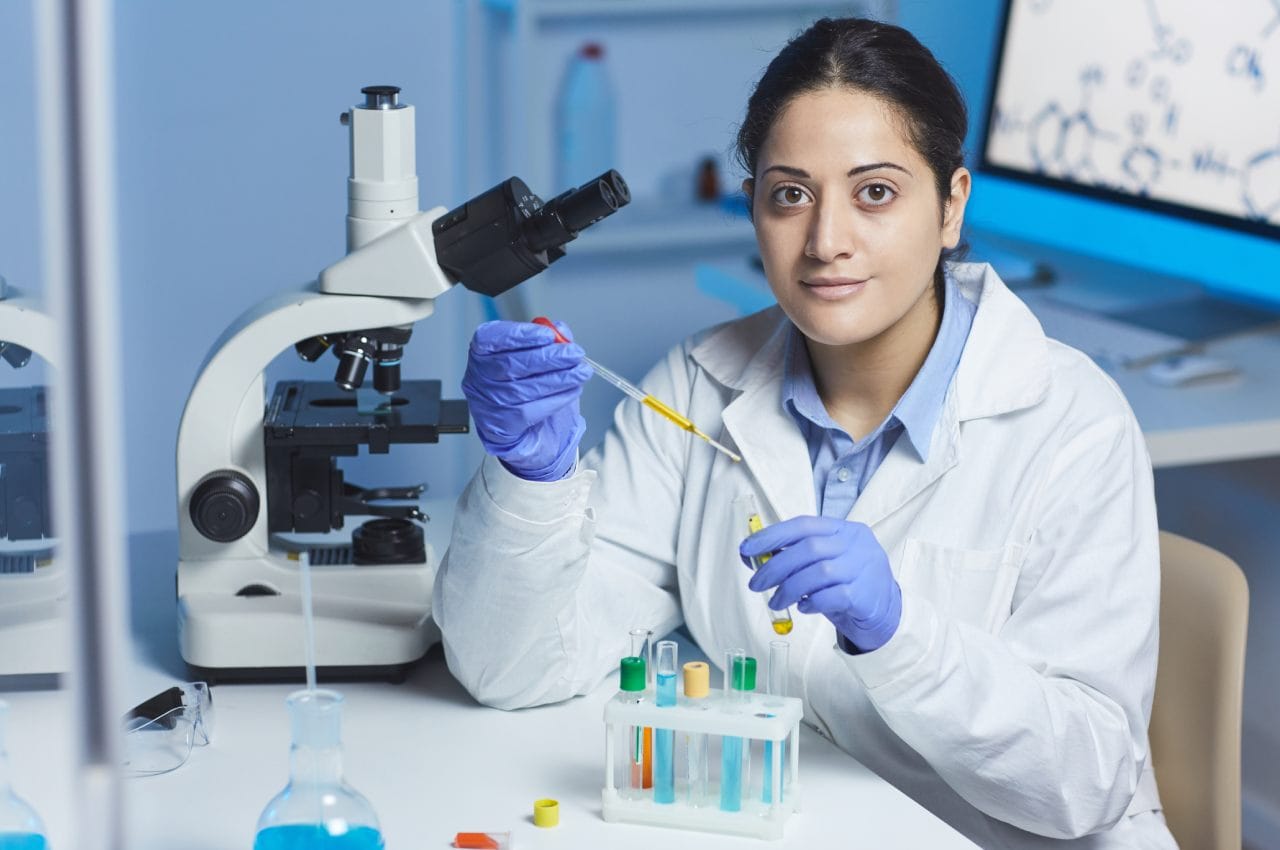Medical Lab Technologhy (DMLT)
Medical Laboratory Technology (DMLT) Course: A Comprehensive Overview
Medical Laboratory Technology (DMLT) is a specialized field of study that plays a crucial role in the healthcare sector. It involves the application of various laboratory techniques to diagnose, monitor, and treat diseases. This course equips individuals with the knowledge and skills needed to work in medical laboratories, where they perform a variety of tests and analyses on patient samples.
1. Introduction to Medical Laboratory Technology:
Medical Laboratory Technology, often abbreviated as DMLT, is a branch of healthcare science that focuses on the laboratory analysis of bodily fluids such as blood, urine, and tissues. The information gathered through these analyses is vital for doctors to make accurate diagnoses and devise appropriate treatment plans. DMLT professionals, also known as medical laboratory technicians, are an integral part of the healthcare team.
2. Duration and Eligibility:
DMLT courses are generally of varying durations, ranging from one to three years, depending on the level of the program (certificate, diploma, or degree). The eligibility criteria may vary among institutions, but a common requirement is a high school diploma with a background in science. Some programs may also consider candidates with a bachelor’s degree in a related field.
3. Curriculum and Course Structure:
The DMLT curriculum is designed to provide students with a strong foundation in both theoretical knowledge and practical skills related to medical laboratory procedures. The courses typically cover subjects such as:
Anatomy and Physiology: Understanding the structure and function of the human body is crucial for interpreting laboratory results.
Microbiology: Studying microorganisms and their role in diseases, as well as techniques for their identification.
Biochemistry: Exploring the chemical processes within living organisms, with a focus on diagnostic applications.
Hematology: Analyzing blood samples to identify and understand various blood disorders.
Pathology: Investigating the nature and causes of diseases through the examination of tissues, organs, and bodily fluids.
Immunology: Studying the body’s immune system and its responses, including diagnostic methods such as serology.
Clinical Biochemistry: Applying biochemical techniques to analyze components of bodily fluids for disease diagnosis.
Histopathology: Examining tissues under a microscope to identify abnormalities and diseases.
Clinical Microbiology: Learning about the identification and management of infectious diseases.
Laboratory Management: Understanding the principles of laboratory management, quality control, and ethical considerations.
4. Practical Training:
One of the distinctive features of DMLT courses is the emphasis on practical training. Students are required to spend a significant amount of time in laboratories, gaining hands-on experience in performing various diagnostic tests. This practical exposure is essential for developing proficiency in using laboratory equipment, following protocols, and ensuring accurate and reliable results.

5. Importance in Healthcare:
Medical laboratory technicians play a crucial role in the healthcare system by providing vital information that assists doctors in making accurate diagnoses. Their work is instrumental in monitoring disease progression, evaluating the effectiveness of treatments, and ensuring patient safety. Without the information generated by laboratory tests, medical professionals would face challenges in understanding the physiological and pathological aspects of diseases.
6. Job Opportunities and Career Pathways:
Upon completion of a DMLT course, individuals can pursue a variety of career paths in the healthcare sector. Some common job opportunities include:
Medical Laboratory Technician: Performing routine laboratory tests and analyses under the supervision of a medical laboratory technologist.
Laboratory Technologist: Overseeing laboratory operations, conducting complex tests, and ensuring the accuracy and reliability of results.
Research Assistant: Working in research settings to assist in experiments and studies related to medical science.
Pharmaceutical Laboratory Technician: Engaging in quality control and analysis of pharmaceutical products.
Pathologist Assistant: Assisting pathologists in conducting autopsies and examining tissues for diagnostic purposes.
Infection Control Officer: Monitoring and implementing infection control protocols in healthcare settings.
Blood Bank Technician: Handling blood donation, storage, and transfusion processes.
Teaching Faculty: Educating future generations of medical laboratory professionals.
7. Advancements in DMLT:
The field of Medical Laboratory Technology is continually evolving with advancements in technology and diagnostic techniques. As new technologies emerge, DMLT professionals need to stay updated with the latest developments to ensure the accuracy and efficiency of their work. Molecular diagnostics, automation, and artificial intelligence are some of the areas where DMLT is witnessing significant advancements.
8. Challenges in DMLT:
Despite its critical role in healthcare, the field of DMLT faces certain challenges. These challenges include:
Shortage of Skilled Professionals: In some regions, there is a shortage of skilled DMLT professionals, leading to increased workloads and potential compromises in the quality of laboratory services.
Rapid Technological Changes: Keeping up with the rapid pace of technological advancements requires ongoing training and education for professionals to ensure they can effectively use new diagnostic tools and techniques.
Workplace Hazards: Working in a laboratory environment involves exposure to potentially hazardous materials. Proper safety measures and protocols are crucial to protect the health of laboratory professionals.
Quality Assurance: Ensuring the accuracy and reliability of test results is paramount. Laboratories must implement robust quality control measures to maintain high standards.
9. Conclusion:
In conclusion, Medical Laboratory Technology (DMLT) is a dynamic and indispensable field in the realm of healthcare. The contributions of DMLT professionals are integral to the diagnostic process, guiding medical practitioners in the effective treatment of patients. The combination of theoretical knowledge and practical skills acquired through DMLT courses prepares individuals for diverse career opportunities in medical laboratories, research settings, and beyond. As the field continues to evolve, staying abreast of technological advancements and maintaining a commitment to quality assurance will be crucial for the success of DMLT professionals in contributing to the advancement of healthcare.